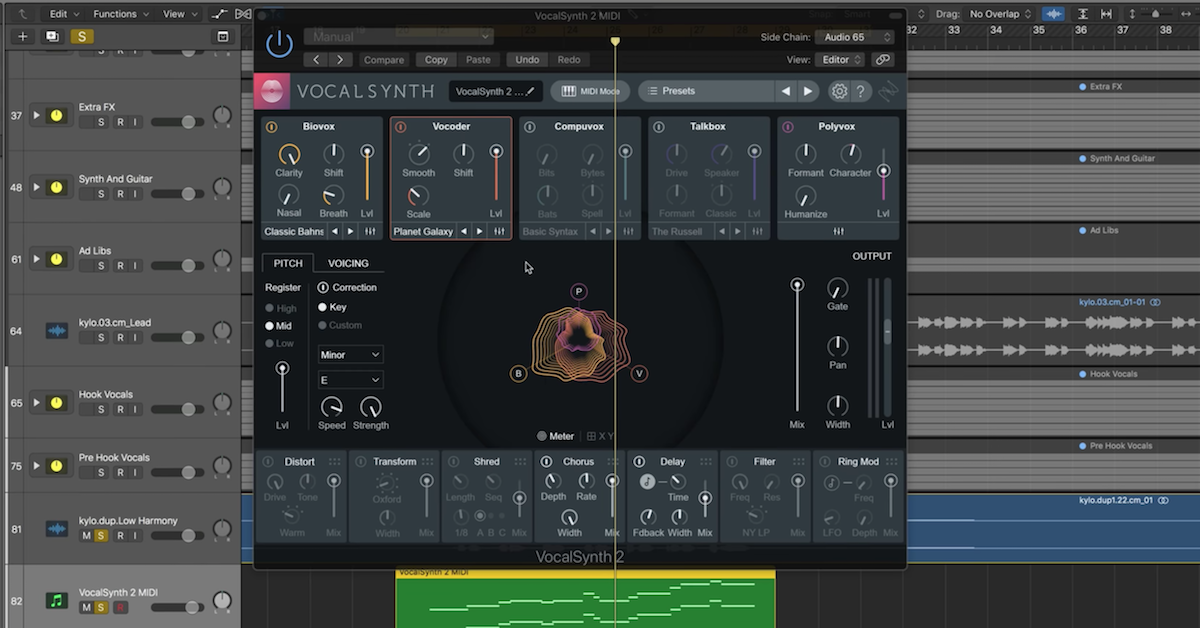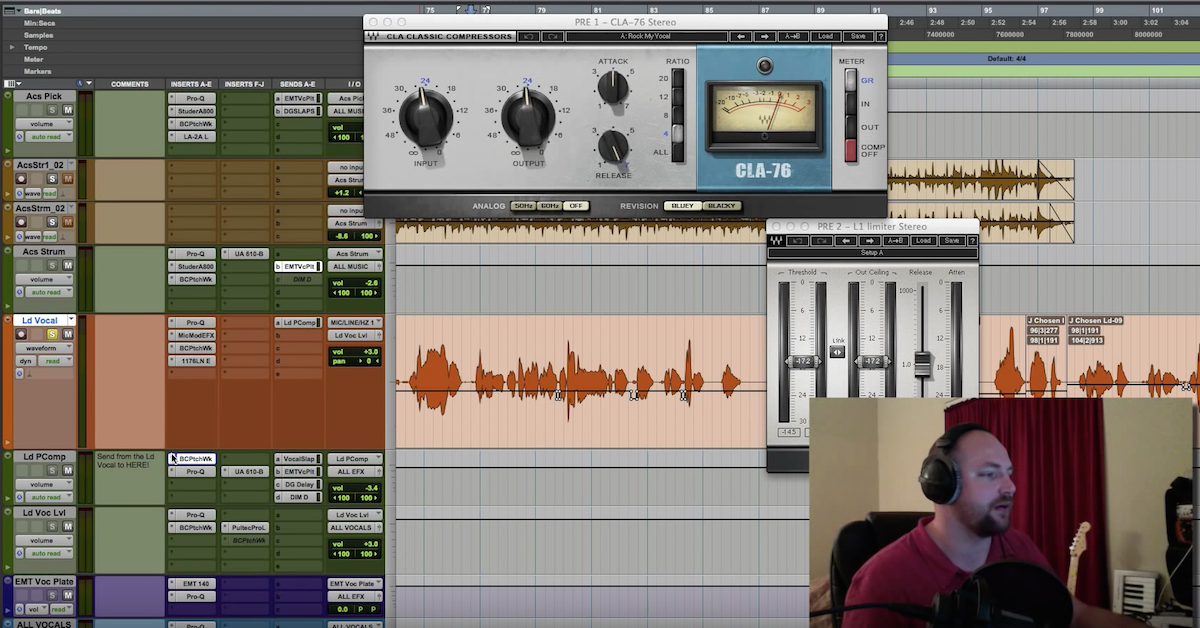Music: Past, Present, and Future
Article Content
(A Logical Interpretation of Past Musical Growth Relating to the Present Recording Industry and its Future)
Musical Progression
Music has evolved slowly within many different cultures over thousands of years. It’s growth has always been dependent upon cultural expansion, innovation, and societal acceptance or rejection. With the growth of the “music industry” in the recently industrialized and increasingly globalized human societies, there has been a shift in the sub-currents which guide musical expansion, growth and innovation.
The modern “music industry” has spawned many conventions which, in turn, lead to new, progressive conventions or anti-conventions. Eventually, through various processes of cultural rejection and acceptance, anti-conventions become conventions which spawn new anti-conventions… and so the cycle repeats.
Although this cycle is reminiscent of traditional musical growth, it is fundamentally differentiated from tradition in its current industrialized context. The adoption of capitalism, and its inarguable ties to industrialization in modern societies, has created a will among its constituents to profit from all that can be sold. Modern musical progression has unfortunately been caught-up in this modern-day “gold rush.”
Traditionally, musical composition and creativity in the utilization of compositional techniques has been a symbol of excellence and accomplishment. Commissions from royal courts or highly regarded churches were awarded to the most advanced and innovative composers, who would consistently strive to create, above all else, music for its beauty, wonder, and significance. Though restricted by various, yet progressively loosened cultural boundaries, the main goal of the most accomplished composers has always been to search within their musical compositions for a sense of musical mastery and understanding, acting centrally as scientists studying music as a natural science.
Breaking the Boundaries
Musical growth has always been slowed by the even-slower growth of societies. Social acceptance and expectations were key to the allowance of specific musical progressions (i.e. churches declaring tritones or compositions written in evenly divided meters as evil, totalitarian rulers ordering strict punishments to composers that strayed from acceptable boundaries, etc.). Finally, the imminent birth of democracy and individual liberties was to be a revolution in musical progression and the beginning of the end of such cultural boundaries…or was it?
Throughout the nineteenth century, musical creativity flourished, finally relieved from the binds of the Classical Era, leading the way to the somewhat absurd extremes of the twentieth century (i.e. serialism). At the turn of the twentieth century, the progression of musical composition seemed to be thriving at an almost unstoppable rate of expansion.
Creating New Boundaries
As industrialization began to break production thresholds in the beginning of the twentieth century, musical instruments, scores, and transcripts became increasingly accessible to capitalist constituents (the common man, woman, child, or family within capitalist societies), thus feeding the indulgences of amateur hobbyists musicians and the emerging industrialist leaders that capitalized on the venture. Under the guise of practicality, these industrialists paved the way for the eventual creation of the “music industry.”
More individuals began creating music and writing songs than ever before. Revolutionary recording technologies were being developed. The use of electricity and electronic components in recording technology and instrument design, construction, and implementation fundamentally changed the evolution of music indefinitely. The promise shown in the early twentieth century was phenomenally rich and plentiful, however, bittersweet and not without certain irreparable changes.
With the increase in recordings being produced, and the seemingly endless demand for new music, record company executives needed something to advertise to the masses. This product needed to be catchy, easily understood, and quickly and efficiently emotionally relevant. They turned to folk musicians, of which there was no shortage of eager and willing participants, to fill this demand. These advertising campaigns proved to be a capital success, leading to startling growth, expansion, and influence. The masses were hooked.
“If it isn’t broken, then why fix it?” This question, though seldom asked, was endlessly answered through decades of success and prosperity. Audiences fed upon the shallow emotions portrayed in the folk music, to which, they could easily relate. Love, despair, loneliness, spirituality, and societal themes became prevalent in almost every production. Quite immediately, the music industry became a service provided to consumers and musical progression became dependent upon demand, rather than scientific study. Ironically, for the very first time musical composition had finally broken through its boundaries and evolved into something unexpected (i.e. progressive and new expressions of tonality such as serialism, graphically notated compositions, etc.), yet the public demanded folk music.
Starting From Scratch
Folk music, now dubbed “popular music,” had begun its own evolution. Pulling largely from classic compositional techniques, simple and easily recognizable, and repackaged in a contemporary wrapper, this evolution was viewed as a continuation of compositional evolution. Blues, jazz, country, soul, rock…new forms of music? These genres cannot be regarded as new; all of these styles are derived from compositional techniques that have existed for hundreds of years.
Blues was formed as a style of music that was almost instantly playable by any musician, expressly amateurs. Its basis being, a system of dominant and secondary dominant chords. Jazz was a sloppy combination of blues and poorly executed classical techniques (i.e. German augmented sixth chords in new inversions labeled as flat sixth chords, random modal substitution, consistently different improvisation highlighting the specific musicians’ technicality, rather than compositional creativity, etc.).
Rock and Roll was glorified beyond reasonable extents as a revolution in music, when it was really just a childish and simplified take on the blues, using electronic instruments as toys to display childhood angst during the self-indulgent social shift of the 1960s and 1970s. This genre provoked a more severe and even simpler rebellion labeled “punk rock,” that seemed to almost embrace the pure hatred of conventional music and selfishly ravage musical composition in the name of trite and impatient childhood angst. These shifts spawned two related genres in the 1980s: electronic rock, a take on rock and roll, however, embracing simple melodies and the excessive use of electronic instruments, and “metal,” embracing a mixture of punk rock and traditional rock, yet lacking in lyrical content consistent with the growing trends in most genres.
Sadly, traditional musical composition became largely uninteresting to society as self-indulgent amateurs captivated the masses.
Where Does This Leave Us?
We must understand the past to understand the present, and what the future will almost inevitably produce. Considering the growth of the music industry, most technological advancements in recording and music production have catered to these trends. Whether analog to digital, live recordings to sampled recordings, tape hiss and distortion to digital clarity, all have been in the pursuit of producing a more polished product to present to the consumer audience of the now massive music industry. This knowledge is indescribably invaluable to modern music producers and recording engineers.
We need to get back to studying music as a natural science. We need to return to traditional music exploration, even if it does not lead to immediate capitalization. We need to understand, as representatives of musical creation, that our work is inherently scientific and not limited by the trivial and insignificant demands of the consumer public. The music industry needs revolution and reorganization. We are the present and the future of the music industry, and as musical creators it is pertinent that we be the change that is so sorely needed within this industry.






